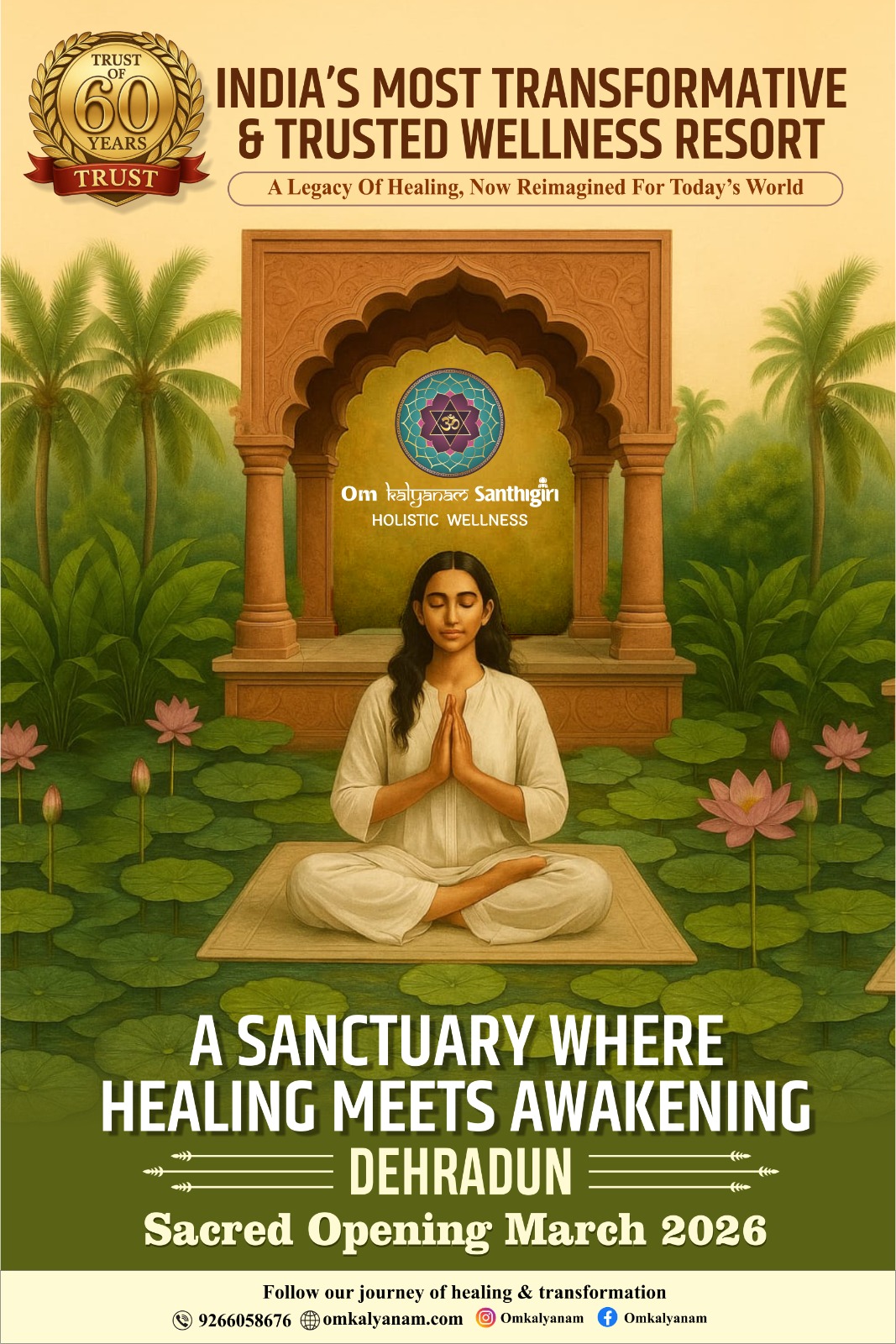
Rooted in six decades of conscious living, Om Kalyanam Santhigiri redefines holistic wellness through purpose, wisdom, and service. A space to heal self, uplift society, and awaken higher living.


Rooted in six decades of conscious living, Om Kalyanam Santhigiri redefines holistic wellness through purpose, wisdom, and service. A space to heal self, uplift society, and awaken higher living.
